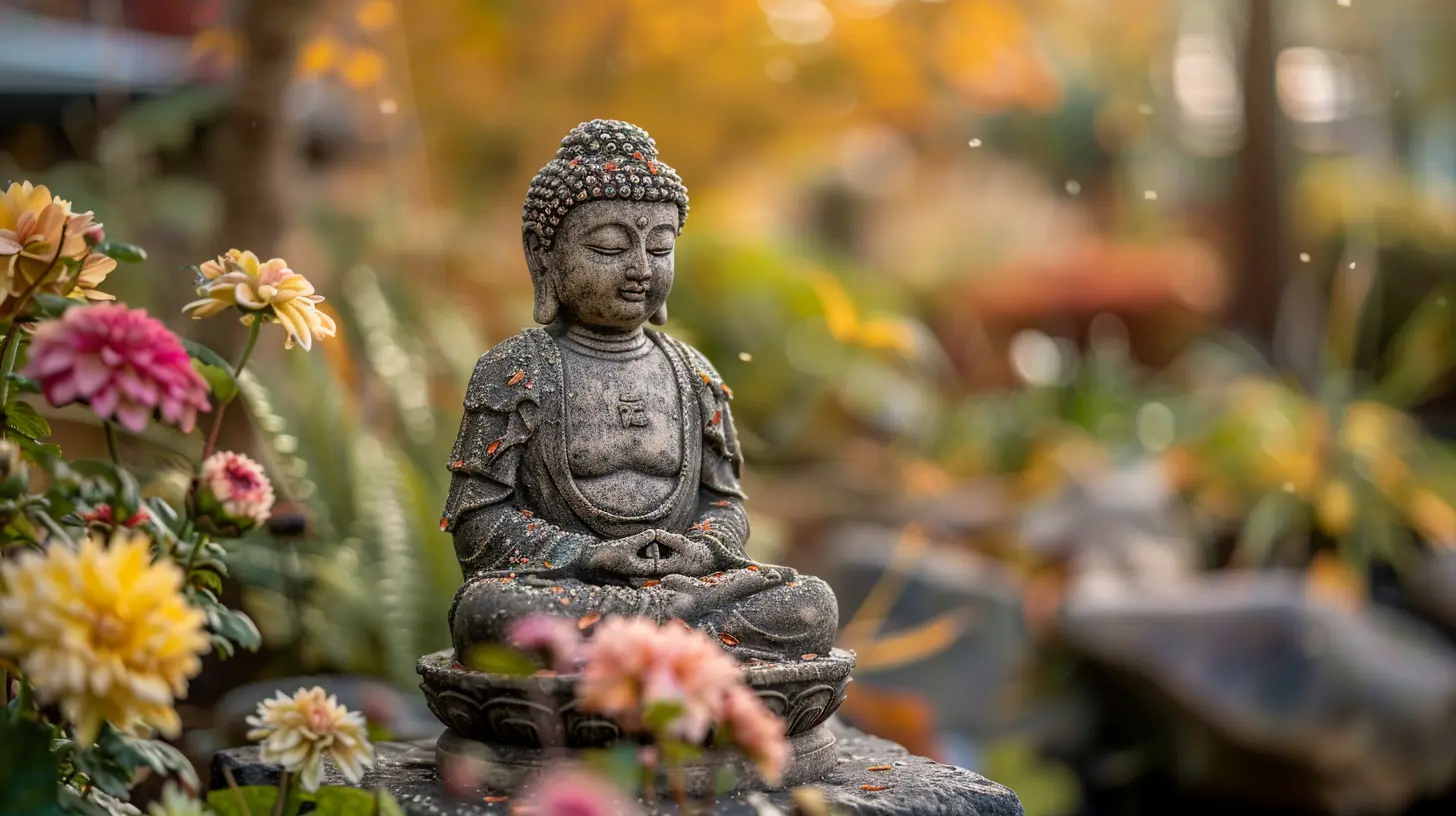Mindful Meditation Practices to Live More Fully in the Present
25 May 2025
In today’s fast-paced world, being present feels like an impossible feat. Our minds are constantly racing—planning the future, replaying the past, or simply drifting into autopilot. But what if I told you there’s a way to anchor yourself in the now?
Mindful meditation is the key to cultivating awareness, reducing stress, and truly experiencing life as it unfolds. It’s not about escaping reality but embracing it with an open heart and mind. So, let’s dive into some powerful mindful meditation practices that can help you live more fully in the present. 
What Is Mindful Meditation?
Mindful meditation is a form of meditation rooted in mindfulness—the practice of being fully aware of the present moment without judgment. It involves observing thoughts, feelings, and sensations as they arise, rather than reacting to them.This practice has been around for centuries, with its roots in Buddhist traditions. However, in recent years, scientific research has backed its benefits, making it a widely accepted tool for mental well-being. 
Why Is Living in the Present So Hard?
Let’s be honest—staying present isn't always easy. Our brains are wired for survival, which often means thinking ahead or analyzing past experiences. But in today’s world, this can lead to excessive worry, anxiety, and stress.Distractions are everywhere. Social media, work deadlines, and never-ending to-do lists pull our attention in a million directions. No wonder we struggle to be fully engaged in the present! That’s where mindful meditation steps in, helping us slow down and reconnect with what’s happening right now. 
Benefits of Mindful Meditation
Before jumping into the practices, let’s talk about why mindful meditation is worth your time. The benefits go beyond just feeling calm—it transforms your brain, behaviors, and overall well-being.1. Reduces Stress and Anxiety
Mindful meditation lowers cortisol—the stress hormone—helping you feel more relaxed. By focusing on the present, you stop the train of overthinking and ease anxious thoughts.2. Improves Emotional Regulation
Ever said something in the heat of the moment and regretted it later? Meditation strengthens your ability to pause and respond rather than react impulsively.3. Enhances Focus and Productivity
Struggling to concentrate? Mindfulness trains your brain to stay on task, improving your attention span and efficiency.4. Boosts Overall Well-being
From better sleep to increased self-awareness and improved relationships, mindfulness positively impacts nearly every aspect of life.
Mindful Meditation Practices to Live More Fully in the Present
Now that we understand why mindfulness matters, let’s get into practical ways to incorporate it into daily life.1. The 5-4-3-2-1 Grounding Exercise
This simple technique helps bring you back to the present moment when your mind starts to spiral.- 5 things you see – Look around and name five things you can see.
- 4 things you feel – Notice four sensations (e.g., the warmth of your sweater, the chair supporting you).
- 3 things you hear – Tune in to three sounds around you.
- 2 things you smell – Identify two scents nearby.
- 1 thing you taste – Focus on the taste in your mouth or take a sip of a drink.
By the time you finish, you’ll feel much more grounded.
2. Breath Awareness Meditation
Your breath is always with you—it’s an anchor to the present.How to do it:
1. Find a quiet spot and sit comfortably.
2. Close your eyes and take a deep breath in through your nose, then exhale slowly.
3. Focus on your breathing. Feel the air entering your lungs and leaving your body.
4. If your mind wanders, gently bring your focus back to your breath.
Even just five minutes of breath awareness can reset your mind.
3. Body Scan Meditation
Our bodies hold onto stress, often without us realizing it. A body scan helps release that tension.How to do it:
1. Lie down or sit comfortably.
2. Close your eyes and take a few deep breaths.
3. Start from your toes, paying attention to how they feel. Are they tense? Relax them.
4. Slowly move up your body—feet, legs, hips, stomach, chest, arms, neck—acknowledging any tightness and consciously letting it go.
This is a great practice right before bed to promote relaxation.
4. Mindful Walking
Walking isn’t just about getting from point A to B—it’s an opportunity to practice mindfulness.How to do it:
1. Walk at a slow, relaxed pace.
2. Notice the sensation of your feet touching the ground.
3. Pay attention to your surroundings—the sounds, smells, and colors.
4. Focus on your breath and the rhythm of your steps.
Mindful walking is perfect for clearing your head, especially if you spend most of your day indoors.
5. Gratitude Meditation
Practicing gratitude shifts your focus from what’s missing to what’s already present in your life.How to do it:
1. Sit comfortably and close your eyes.
2. Take a few deep breaths.
3. Think of three things you’re grateful for—big or small.
4. Feel the appreciation in your heart.
This simple practice can completely change your perspective on life.
6. Mindful Eating
How often do we eat in a rush, barely tasting our food? Mindful eating brings awareness to the experience of eating.How to do it:
1. Choose a meal or snack.
2. Eat slowly, and notice the textures, flavors, and smells.
3. Chew thoroughly and savor each bite.
4. Put away distractions (yes, that means no scrolling while eating!).
This not only enhances your enjoyment of food but also improves digestion.
How to Make Mindful Meditation a Habit
Starting a mindfulness practice is one thing—sticking with it is another. Here are some tips to keep it consistent:- Start Small – Even just five minutes a day makes a difference.
- Pair It With Another Habit – Meditate after brushing your teeth or before bedtime.
- Use Guided Meditations – Apps like Headspace and Insight Timer offer great beginner-friendly sessions.
- Be Kind to Yourself – Missed a day? No problem. Just get back on track without guilt.
Final Thoughts
Mindful meditation isn’t about silencing your thoughts or escaping reality. It’s about learning to be fully where you are—embracing life as it unfolds. The more you practice, the easier it becomes to stay present, find peace, and truly experience each moment.So, why not give it a try? Your future (and present) self will thank you.
all images in this post were generated using AI tools
Category:
MeditationAuthor:

Sophia Wyatt
Discussion
rate this article
3 comments
Jane Sullivan
Mindful meditation enhances our awareness and appreciation of the present moment, reducing stress and improving emotional well-being. Regular practice can foster resilience, clarity, and a deeper connection to ourselves and others, enriching our daily experiences.
June 16, 2025 at 2:44 AM

Sophia Wyatt
Thank you for highlighting the benefits of mindful meditation! It's truly a powerful practice for enhancing awareness and emotional well-being.
Zeal McQuillen
This article beautifully highlights the importance of mindful meditation in enhancing our present experience. Thank you for sharing practical insights that can help us cultivate a more fulfilling life.
June 3, 2025 at 3:42 AM

Sophia Wyatt
Thank you for your kind words! I'm glad you found the insights helpful for cultivating mindfulness in daily life.
Myles Wolf
Thank you for sharing these insightful mindful meditation practices. I often find it challenging to stay present in our fast-paced world, but I’m eager to incorporate these techniques into my daily routine. I appreciate the gentle reminders to embrace each moment fully.
May 25, 2025 at 4:40 AM

Sophia Wyatt
Thank you for your thoughtful comment! I'm glad you found the practices helpful. Embracing each moment can truly transform our daily experiences. Wishing you all the best on your mindfulness journey!



